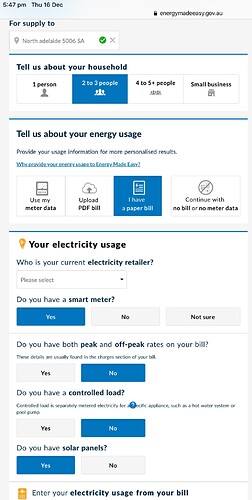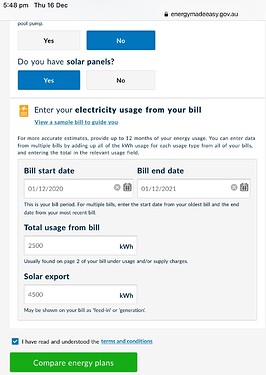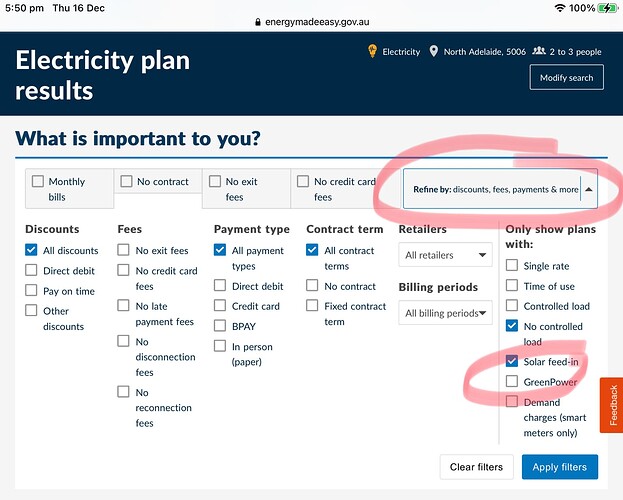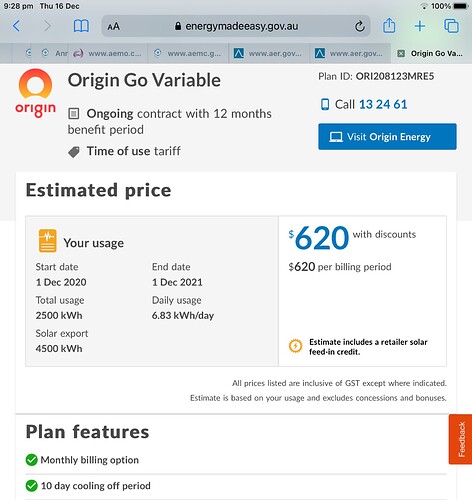I use electricity, and have solar panels.
This means the energymadeeasy gov website is useless because it doesn’t compare solar offerings.
So I use wattever.com.au
which is great except most of the 10 ten best (cheapest?) retailers for me - I have never heard of them. I don’t know what their compliant per customer percentage is or how to find out.
I have had some really bad experiences with one company and have heard horror stories from friends about massive overcharging - and the only way I fixed it was spending about 6 months working with the Energy ombudsman to fix it. The same company that over charged also had the hide to give my details to a debt collector for a debt I did not owe.
So which companies routinely have bad customer service and which are great? How do I find out?
For instance the top ten plans suggested by Wattever.com.au are
CovaU (coal only) https://www.choice.com.au/shopping/shopping-for-services/utilities/articles/covau-energy
1st Energy (Choice rates worst ever) https://www.choice.com.au/shopping/shopping-for-services/utilities/articles/1st-energy
Dodo (will not go near them based on my experience of them with internet).
Energy Locals (good green cred) https://www.choice.com.au/shopping/shopping-for-services/utilities/articles/energy-locals
Sumo (not great) https://www.choice.com.au/shopping/shopping-for-services/utilities/articles/sumo-power
Discover Energy (no idea - choice has not reviewed)
AGL Solar Savers (also had poor experience with AGL). And so has Choice (https://www.choice.com.au/shopping/shopping-for-services/utilities/articles/agl)
the others - I’ve got no idea if they are any good. The only ranking I have for them is “Cheaper”.
Choice has reviewed some of them.
But does not take into account your energy use, or whether you have solar etc, so I guess if there is an overlap between the “cheapest” on Wattever and Choice reviews that might be helpful.
I can’t find any review of “Discover Energy”
There’s a list of articles reviewing different Energy retailers here
click on “33 more articles” to see them.
I found the articles by putting each energy company name into the search Choice field but I cannot find a single page that ranks them all.
Also given Sumo came up for 5000 post code - I would think they do sell in South Australia but Choice article says they don’t.
So based on that click fest - looks like best for me right now is “Energy Locals”.
Why can’t this process be easier and clearer.



